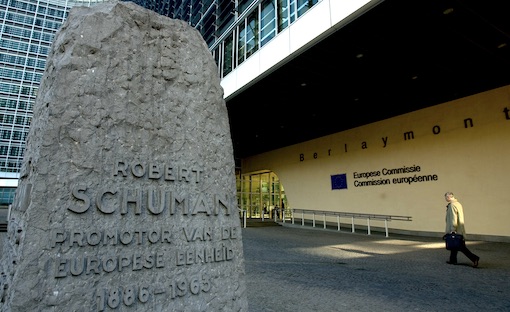© Sigmagazine, rivista d'informazione specializzata e destinata ai professionisti del commercio delle sigarette elettroniche e dei liquidi di ricarica - Best edizioni srls, viale Bruno Buozzi 47, Roma - P. Iva 14153851002 - Direttore responsabile: Stefano Caliciuri - Redazione: viale Angelico 78, Roma - Testata giornalistica registrata presso il Tribunale di Roma al numero 234/2015 - Registro Operatori della Comunicazione: 29956/2017
Collection of signatures for the petition vaping is not tobacco began several months ago. Many papers, however, are still asking why this type of initiative was necessary and why we are not already writing the text of a new directive. first, let’s try to understand how the European legislative process works. The entity is the need to work together to draft new European laws are: the European Parliament, the European commission, and the Council of ministers. There are no other means, such as a referendum, that involve direct intervention of other social groups in the legislative process–Except the European citizens’ initiative. This tool, for its part, is limited to asking the European commission to draft legislation and send it to the European Parliament—it doesn’t provide any means to intervene directly in the drafting of the laws. The rules of European citizens initiative foresee a proposal by a group of at least seven European citizens coming from seven different member states. It must be approved by the European commission. If the proposal or the formulation of the initiative does not follow the rules foreseen, the initiative is refused. After the initiative is approved by the European commission, its supporters need to collect 1 million signatures throughout the European Union together with certain minimum thresholds for at least seven different European member states. If the numerical goals are achieved, the organisers have to present the initiative to the European commission and eventually the European Parliament. These, in turn, should take note of the requests of the organising committee but have no specific obligation to do so.
 But what exactly is the committee asking for? The text of the initiative is quite simple, as requested by the European rules. Nevertheless, there are intentions between the lines that we quote below for the sake of completeness:
But what exactly is the committee asking for? The text of the initiative is quite simple, as requested by the European rules. Nevertheless, there are intentions between the lines that we quote below for the sake of completeness:
Repeal Article 20 of Directive 2014/40/EU and replace it with bespoke scientific, evidence-based legislation in line with the functioning of the internal market that distinguishes vaping products from tobacco & pharmaceutical products; – Ensure new legislation based on mandatory compliance with robust product quality, safety & manufacturing standards, together with responsible marketing practices that ensure youth protection; – Vaping policy should foster innovation and ensure smokers and vapers have clear information and access to tobacco-free less harmful alternatives.
Let’s go through this point by point to understand what the Vaping is NOT Tobacco initiative is asking for.
“Repeal article 20 of the directive 2014/40/EU”
This directive, better known as TPD2, introduced the regulation of electronic cigarettes and refill liquids containing nicotine. Many of the elements of this law were inspired directly by the world of tobacco, including a ban on advertising and long periods between the notification of a new product and its sale. Strangely, the Commission introduced some other incomprehensible rules. For example, while tobacco rules specify the minimum number of cigarettes per package sold, the vaping rules specify the maximum number of refill cartridges.
“replace it with bespoke scientific, evidence-based legislation”
We seek a new law dedicated specifically to vaping products and refill liquids without any references to products that have nothing to do with vaping. TPD should remain dedicated to all the products that contain tobacco – both old and new products – but nothing more. We want the new directive to be based on scientific evidence. By evidence, we mean serious research and validation, not the kind of assumptions on which the Commission bases many of its current health claims, especially the theory – never proven – of the alleged “gateway” relationship between vaping and tobacco.
“In line with the functioning of the single market”
Here we take issue with the discretionary power that was given to individual member states, particularly a ban and cross-border sales – in flagrant violation of the Lisbon Treaty on the free movement of goods within the European Union – or taxes which replace excise taxes, which, we like to remind people, should be harmonised at the European level.
“that distinguishes vaping products from tobacco & pharmaceutical products”
We don’t want to go from the frying pan into the fire and need to make clear from the outset that trading vaping products like pharmaceutical products would only serve to fatten the bottom lines of big companies while harming consumers.
 “Ensure new legislation based on mandatory compliance with robust product quality, safety & manufacturing standards”
“Ensure new legislation based on mandatory compliance with robust product quality, safety & manufacturing standards”
As consumers, our primary interest is ensuring the quality of products sold in Europea. Our health is our priority and we ask the European Commission to give the same attention to vaping products as to all the other products destined for human consumption, including food products.
“together with responsible marketing practices that ensure youth protection”
This may be the only topic on which everyone agrees. We need to reinforce the concept that vaping is not a toy for children, and that young people must not have access to vaping products. We also need to make sure that young people don’t start smoking, but that is another discussion.
“Vaping policy should foster innovation”
All of the laws on tobacco are written in such a way that they fail to incentivize innovation and make it more difficult – if not impossible – to introduce new products. On the contrary, vaping needs innovation in order to create products that can satisfy smokers and convince them to abandon smoking.
“and ensure smokers and vapers have clear information”
The impossibility of communicating the benefits of vaping in the face of a mass of pseudoscientific, misleading information, is creating doubts among many smokers, some of whom have even reached the point of believing that it is better to continue smoking. That situation is creating a very real and serious threat to the health of European citizens.
“and access to tobacco-free alternatives that are less harmful.”
In San Francisco it is possible to buy tobacco products but not vaping products. Such limitations on marketing represent a threat to public health and only contribute to maintaining a healthy market for tobacco to the benefit of those selling and producing cigarettes.
 So what certainty do we have that we will achieve our goals if we reach the number of signatures required by European Citizens’ Initiative? That is where the second part of this campaign comes to play, the grassroots tool. The committee has created a powerful communications tool that allows anybody to write to their representatives in the European Parliament, to Commissioners and two members of committees. With this tool it’s possible to educate lawmakers and the themes related to vaping and underline the necessity of protecting this tool which has helped millions of European citizens to find an alternative – a healthier alternative – to smoking tobacco. Moreover, whether we succeed in collecting 1 million signatures or not, tens of thousands of messages have already been sent from individual European citizens to their elected representatives and that is valuable in itself. We therefore call on all vapers, resellers, producers and representatives of the various sector associations to use this tool as a matter of urgency. We need to break through to members of the European Parliament before they get a legislative text on their desks that is written by people who may be unaware of the full consequences of the legislator’s pen. The committee will support initiatives to reach out directly to the European Commission in Brussels and to members of the European Parliament in Strasbourg in order to raise awareness on this topic and help them understand what vaping really is.
So what certainty do we have that we will achieve our goals if we reach the number of signatures required by European Citizens’ Initiative? That is where the second part of this campaign comes to play, the grassroots tool. The committee has created a powerful communications tool that allows anybody to write to their representatives in the European Parliament, to Commissioners and two members of committees. With this tool it’s possible to educate lawmakers and the themes related to vaping and underline the necessity of protecting this tool which has helped millions of European citizens to find an alternative – a healthier alternative – to smoking tobacco. Moreover, whether we succeed in collecting 1 million signatures or not, tens of thousands of messages have already been sent from individual European citizens to their elected representatives and that is valuable in itself. We therefore call on all vapers, resellers, producers and representatives of the various sector associations to use this tool as a matter of urgency. We need to break through to members of the European Parliament before they get a legislative text on their desks that is written by people who may be unaware of the full consequences of the legislator’s pen. The committee will support initiatives to reach out directly to the European Commission in Brussels and to members of the European Parliament in Strasbourg in order to raise awareness on this topic and help them understand what vaping really is.






